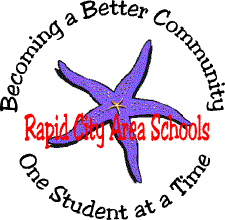|
|
|
 |
5th Grade Mathematics Curriculum and Mapping |
 |
State of South
Dakota Mathematics StandardsMath Standards Approved Summer 2004Beginning in July, 2003, a standards
committee was charged by the South Dakota Board of Education with
revision of the current South Dakota Content Standards and
Performance Descriptors, with input from students, parents,
teachers, and communities of South Dakota. The final document
evolved from recent research in best practices in teaching, the No
Child Left Behind legislation, experience in classrooms with the
existing South Dakota math content standards, the evolution of
published standards from other states, the Principles and Standards
for School Mathematics, published by the National Council of
Teachers of Mathematics (NCTM) in 2000, the Mathematics Framework
for the 2003 National Assessment of Educational Progress, numerous
professional publications, and lengthy discussions by experienced
kindergarten through grade sixteen South Dakota educators. This
revised document was approved by the South Dakota Board of Education on
May 17, 2004. It is important to note that Mathematics for 5th Grade is broken into Five distinct areas:
Below is outlined the individual strands for each particular area in Mathematics Algebra Strand Standards Geometry Strand Standards Measurement Strand Standards Number Sense Strand Standards Statistics and Probability Strands Standards ***There is no curriculum mapping done by the state of South Dakota |
Rapid City Area
Schools Mathematics Standards Introduction--Elementary School Mathematics We live in a time of extraordinary and accelerating change. New knowledge, tools, and way so fdoing and coummunicating mathematics contineu to emerge and evlve. Quantive information available to limited numbers of people a few years ago is now widely disseminated through popular media outlets. The need to understand and be able to use mathematics in everday life and in the workplace has never been greater and will continue to increase. In this changing world, those who understand and can do mathematics will have significantly enhanced opportunities and options for shaping their futures. Mathematical comptetenece opens doors to productive futures. The Mathematics Curriculum committee was formed in 2000 and charged with the task of reviewing and revising the K-12 Mathematics Curriculum to align with the South Dakota Mathematics Content Standards and the National Council of Teachers of Mathematics Principals and Standards 2000. The committee used relevant research from a variety of resources including the National Council of Teachers of Mathematics and the South Dakota State Mathematics Content Standards adopted in 1998. Persons desiring in-depth information regarding this research are directed to the following publications:
Links Mathematics Curriculum Foundation--Grades Pre-K-12 Philosophy Essential Knowledge National Council of Teachers and Mathematics Principles NCTM Content Standards NCTM Process Standards South Dakota State Goals, Indicators, and Benchmarks Rapid City Area Schools Curriculum Standards--5th Grade Rapid City Area Schools Curriculum Map--5th Grade |